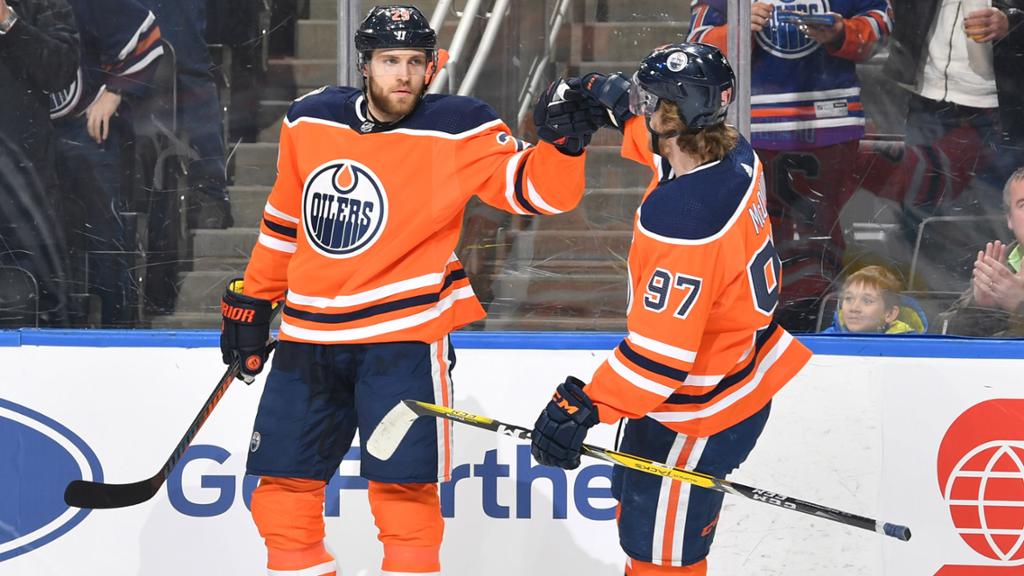
Adding to all of the intriguing storylines that have already arisen during the National Hockey League’s restart, we are experiencing a changing of the guards in real-time. Sports fans know the story, with recent examples coming to mind like Brett Favre passing the torch to Aaron Rodgers, or Joe Flacco taking a backseat to Lamar Jackson. Father time always wins, where eventually a younger, more energetic influx of athletes will take over a sport and become the new faces of the league. This is happening at a faster pace than anybody would have expected in the NHL.
There are two things that have made this notion more apparent in recent months, team achievements (or lack thereof) and players’ success. Between 2009 and 2019, only six teams distinguished themselves as Stanley Cup champions; the Los Angeles Kings, Chicago Blackhawks, and Pittsburgh Penguins account for eight of those Cups alone. This season, these same three teams either lacked the regular season success to make the Playoffs, or were promptly eliminated by far superior teams. In fact, the only team remaining in the Playoffs with a championship in the last decade is the Boston Bruins. Their team is composed of only four of the players from their previous winning roster.

While taking into consideration this small sample size, the likes of; Sidney Crosby, Evgeni Malkin, Patrick Kane, Jonathan Toews, Drew Doughty, and Anze Kopitar are all home during one of the most bizarre periods the NHL has ever seen. Whether this means they’ve exhausted all their efforts, their style of play has been figured out, or they’re being dominated by the younger speedier players, is up for debate. But the point can be made that their glory days may have already come to an end.
The average ages of the above-mentioned teams are all higher than 29. While this is typically seen as a negative, quality playoff experience is hard to come by and extremely valuable to a team. But now, these teams are being outshined by much younger ones. The Vancouver Canucks (avg. age 27.2) beat the defending champions in the first round. The Colorado Avalanche (avg. age 27.0) look as dominant in the Stanley cup as any team in recent memory. Finally, the Philadelphia Flyers (avg. age 27.3) steamrolled through an undefeated exhibition round to steal first place in the eastern conference and ousted the Montreal Canadiens in round one. These teams all feature very young players who are sure to be game-breaking players for years to come.
Taking a look at statistical leaders from the current season, and even prior seasons, one can easily tell the trend that the league is headed in. Out of the top 20 point-scorers, only five are over the age of 30. In addition, six of the top ten are under 25. The days where Evgeni Malkin, Sidney Crosby, and Alex Ovechkin were all but a lock to be the top scorers are in the past. It will be invigorating for NHL fans to be able to watch the new wave of young stars beginning their journeys to find sustained team success.

The individual success has already manifested with players like; Connor McDavid, Leon Draisaitl, Nathan MacKinnon, Mikko Rantanen, Mitch Marner, Auston Matthews, Sebastian Aho, and Andrei Svechnikov each turning in exceptionally dominant statistical seasons early on in their careers. In addition, each aforementioned player is teamed up with another player on the list. This adds to their ability to control and dictate hockey games, and also to their potential team success now and in the future. Not to mention the marketable opportunities that having a young, incredibly skilled duo presents an NHL team with. Not only does a team of this nature become the apple of the media’s eye, they’re also better able to recruit free agent talent, further adding to the team’s makeup.
The scariest part about this idea is that the majority of these “new” players have yet to hit their primes. And as the younger stars of today’s NHL continue to progress mentally and physically, they will only become more dominant. On the flip side, the closer we get to the new wave’s peak, the further away we get from the rulers of the 2010s. The players are already becoming older and slower, giving way to this new trend. It is only fair that 2020 is shaping up to be the end of something great, and from what we are already seeing in the Playoffs, it’s also the beginning of something amazing. Going forward, we will witness the inevitable crowning of the new faces of the NHL in addition to new dynasties emerging. Father time has yet again unavoidably made its mark.
For more NHL coverage, click here.

Must See
-


Basketball
/ 3 years agoScouting Reports and Team Fits for 5 of the Top Prospects in the 2022 NBA Draft
Even with the NBA playoffs raging on into late May, eliminated teams have turned...
-


Athlete Profiles
/ 3 years agoSteven Kwan: Doubt Turned to Success
“The approach and frame show zero promise for game power. Despite having a hit...
By Matthew Suh -


Columns
/ 3 years agoBird’s MLB Season Predictions
Well, welcome back baseball! After a 99 day lockout, which pitted players versus owners...
By Ed Birdsall











